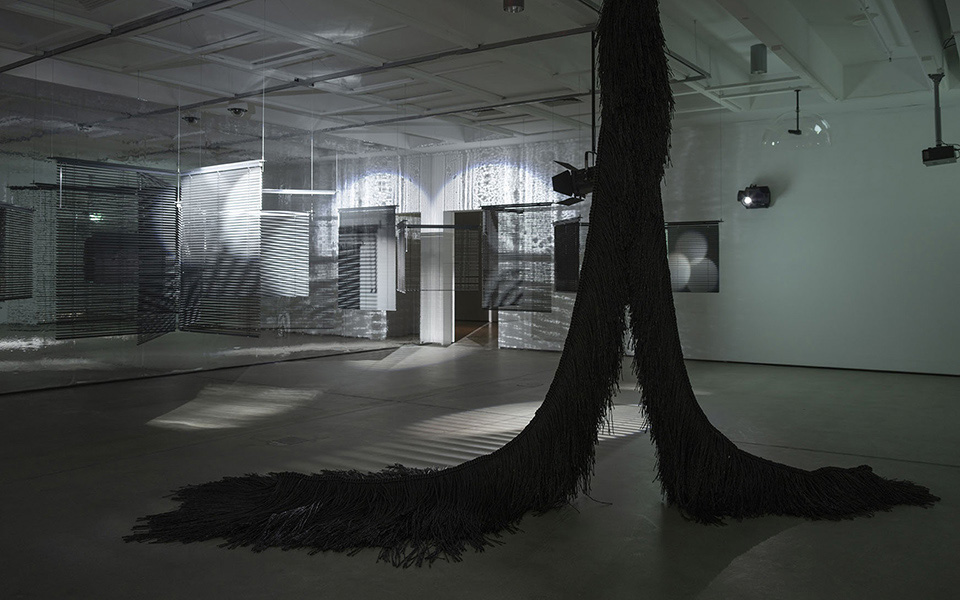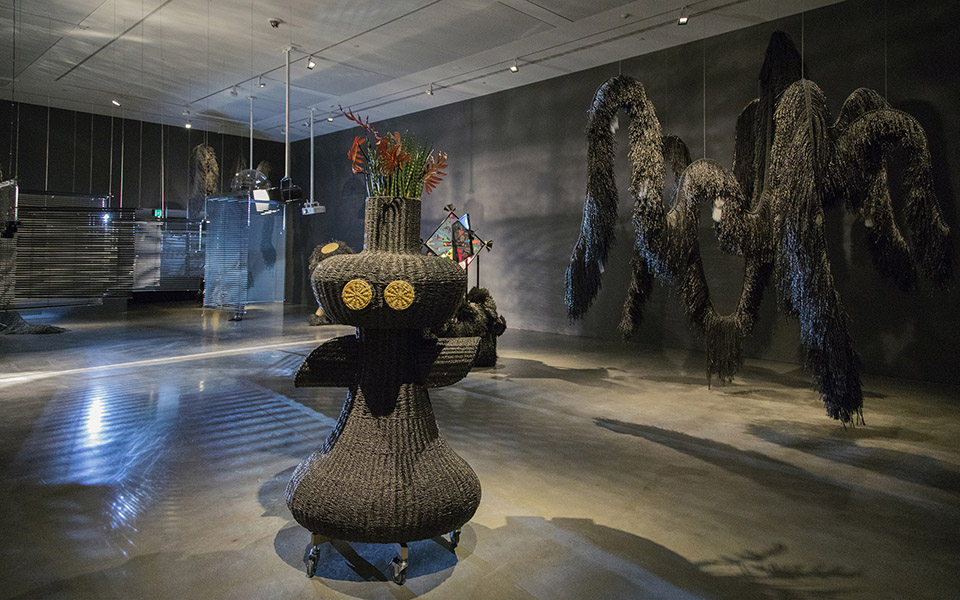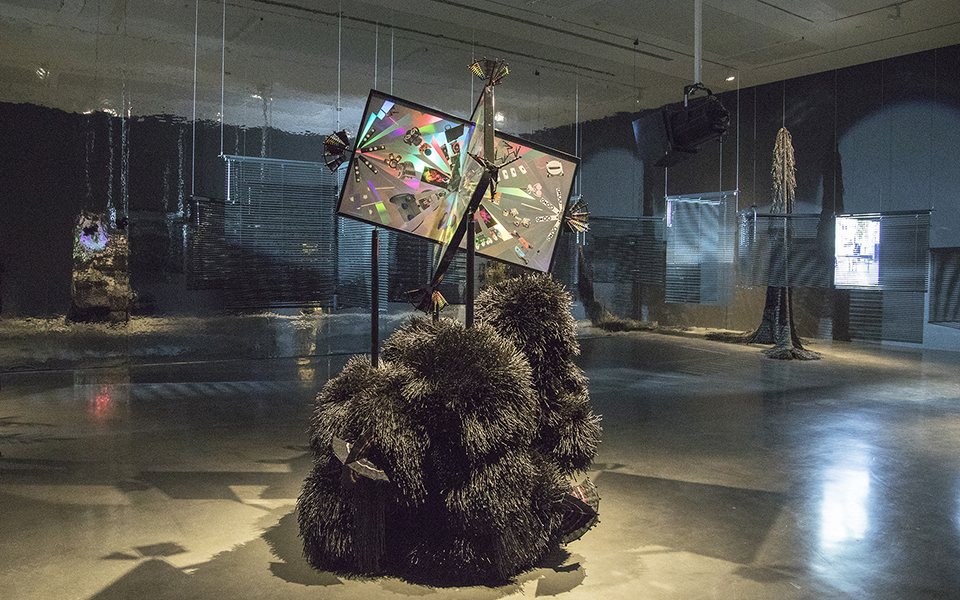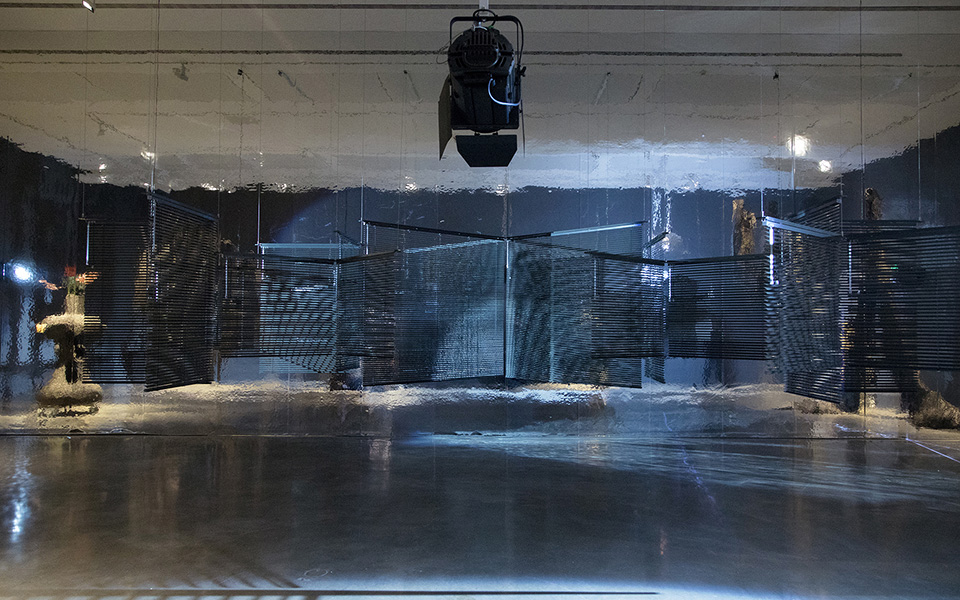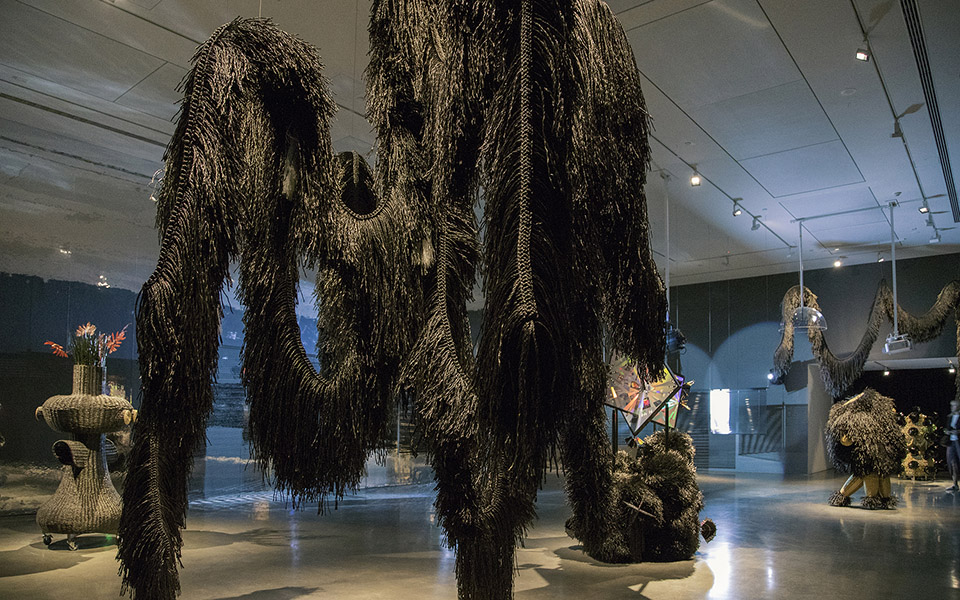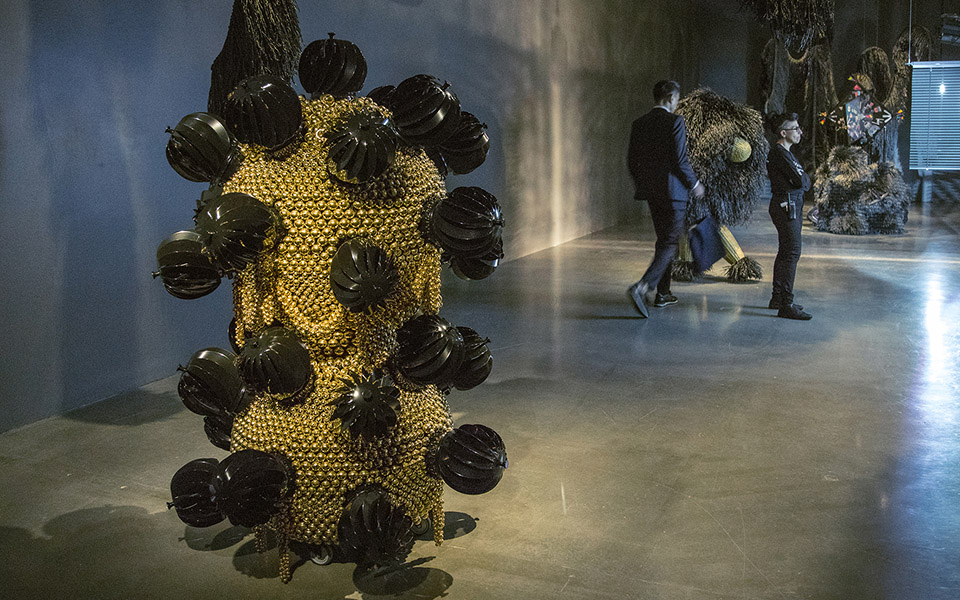ART-PRESENTATION: Haegue Yang-Triple Vita Nestings
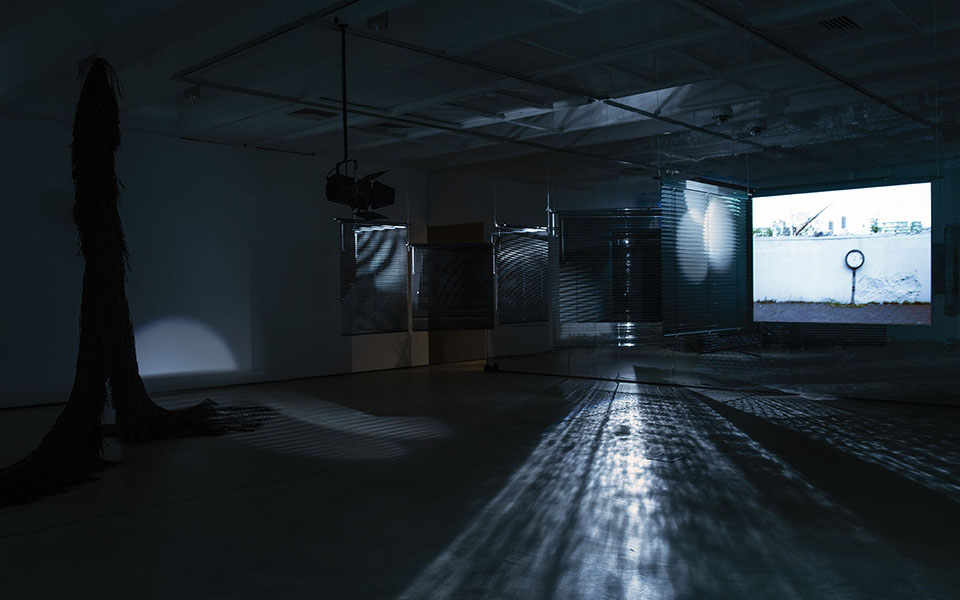 In her work, Haegue Yang seeks to communicate without language, in a primordial and visual way. She often complements her vocabulary of visual abstraction with sensory experiences that include scent, sound, light and tactility. Combining industrial fabrication and folk craftsmanship, Yang explores the affective power of materials in destabilizing the distinction between the modern and pre-modern.
In her work, Haegue Yang seeks to communicate without language, in a primordial and visual way. She often complements her vocabulary of visual abstraction with sensory experiences that include scent, sound, light and tactility. Combining industrial fabrication and folk craftsmanship, Yang explores the affective power of materials in destabilizing the distinction between the modern and pre-modern.
By Efi Michalarou
Photo: IMA-Brisbane Archive
Haegue Yang’s solo exhibition “Triple Vita Nestings” at Institute of Modern Art (IMA) at Brisbane brings together selected works from more than a decade of her practice, these pieces straddle seemingly opposing artistic legacies and aesthetics, between conceptual art strategies and materially-driven craft techniques, industrial production and the handmade, and importantly for this exhibition, between figuration and abstraction. Yang’s work undoes these supposed binaries and creates immersive and imaginative experiences. The exhibition uses formal strategies, such as layering, doubling, splitting, and merging, to reveal how individual subjects are embedded in the lives, stories, and contexts of others. Multi-sensory environments, figurative forms, and voiceover narration evoke the biographies of real figures, as well as mythical or allegorical creatures, and self-reflexive ideas of alienation and neighbourliness. Though these stories and ideas may be distinct, they are not presented in isolation: each character nests inside another, representing our interwoven or parallel realities. Yang has drawn from biographies of historical figures, manifesting pre-existing encounters among them or alternately drawing idiosyncratic parallels between seemingly unrelated figures. Yang’s point of view on history, literature, and personal experience empowers us to perceive nested sets, or relations, between otherwise disparate lives. Haegue Yang’s practice extends across various media, from paper collage to staged theatre pieces and performative sculptures. The artist’s unique visual language is comprised of Venetian blinds, clothing racks, synthetic straw, bells and graph paper —torn, lacquered, woven, lit, and hung. Her artistic explorations stem from material-based concerns, accompanied by philosophical, political and emotionally charged readings of historical events and figures. Her ongoing research is empowered by underlying references to art history, literature and political history, through which she re-interprets some of her recurrent themes: migration, postcolonial diasporas, enforced exile and social mobility. As a result, these pieces link various geopolitical contexts and histories in an attempt to understand and comment on our own time. This translation – from the political and historical into the formal and abstract – demonstrates an unshakable faith that historical narratives can be made comprehensible without being linguistically explanatory in an objective or didactic way.
Info: Curators: Aileen Burns and Johan Lundh, Institute of Modern Art (IMA), Ground Floor, Judith Wright Centre, 420 Brunswick Street, Fortitude Valley, Brisbane, Duration: 30/6-30/8/18, Days & Hours: Tue-sat 11:00-18:00, https://ima.org.au
